On a recent Northern Wisconsin smallmouth float a chilling thought occurred to me: I'm homeless.
I don't mean in the literal sense, but rather that I have no body of water I can called homewater. I've worked through all reasonable definitions of the term. All have come up short.
If, say, homewater is where you fished most often as a kid, that would have to be the lake within biking distance of my childhood home in the suburbs of Chicago. My brothers and I spent thousands of hours on its shores with bobbers and minnows. The problem with its homewater status comes from the fact that over the course of ten years or so we hardly ever caught anything. The only true success I had on that lake was not getting arrested during one of history's larger high school keggers. I knew the back trails, the cops did not.
If homewater is where you fished as a kid and also actually caught fish, then there's a place we referred to colloquially as The Jumps. The Jumps was a series of four interconnected strip mine ponds surrounded by mounds of construction rubble in a new subdivision behind the new Walgreens. The problem with considering The Jumps as homewater is that it is no longer water -- it was drained, filled in and built on some 15 years ago. In the place where I caught my biggest largemouth bass to date, a true 8-pounder on a Rapala Countdown, there sits a pack of garden gnomes and a rose garden. A bird bath boasts the only water in sight.
I started to enlarge my definition. Maybe homewater is where you know exactly where fish will hold within every imaginable cfs window. That would make mine Michigan's Pere Marquette. Here's the high-water seam, there's the low-water seam, that's the spot on the spot where you'll get a tug at 1500 but never at 600. But after thinking about it I decided the Pere Marquette had to be disqualified, since I fished it exclusively in the fall and winter for steelhead. I might not recognize my holes with leaves on the trees.
If homewater is water you know well enough to navigate in the dark, then I’d nominate Michigan's Manistee River, or beats of it at least. The problem here was that I wasn't sure I could navigate it quite as well in daylight. For several years I hexed the bejeesuz out of it and really only know it by starlight and sound. Again, disqualified.
Maybe homewater is where the heart is. In that case the list would be long, since there is a lot of water I fell in love with at first sight. Northern Ontario's canoe country. The Brule River of Northwestern Wisconsin. The remote interior streams of Michigan's Upper Peninsula. But they are just too unfamiliar to merit consideration. Their mystery is part of what makes them so attractive, so interesting to think about on winter nights.
And so being without homewater in a conventional sense meant I was free to think about homewaters in a metaphysical sense, and I started to consider the very river I was floating on at the time. I had floated it about three times a year for the past four years: a total of twelve outings. And yet it felt much more familiar than that. Here's the boulder behind which you always stick a good fish, even when there's only a few inches of water. There's the bend where we might have seen (we were too far off to be sure) a cougar swimming for the far bank. And coming up is the Cedar Bank, also called the Popper Bank, which almost always yields the fish of the day. Yes, I had to admit, this river felt familiar, it felt good. But if I was being honest with myself I'd have to say that I always felt good on water, and that even new water seemed to possess a strange familiarity to me, whether I was stripping streamers through the blue rivers of Chile or dappling dries on the mountain streams of Poland or popping foam on the tea-stained brawlers of northern Wisconsin. And maybe that's why I fish so much. Maybe it's not the fishing. Maybe it's because on good water, true water, I've never felt anything but at home.




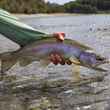
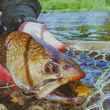

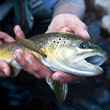
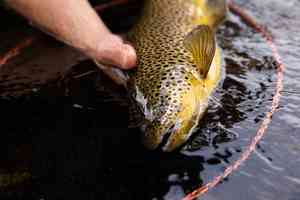

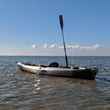
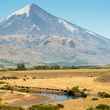
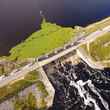
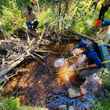
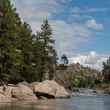
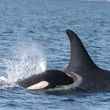
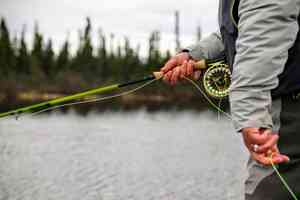

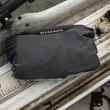
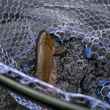
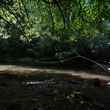



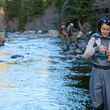
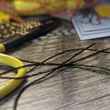
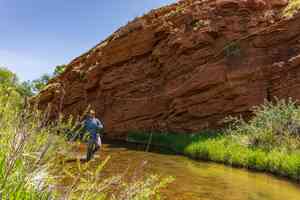
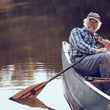
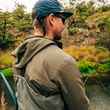
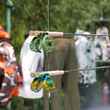
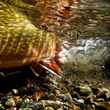
Comments
Steve K replied on Permalink
To me, "home water" is two things:
1. The place you will go to when you only have limited time; the closest fishable water to your home (or your work commute).
2. The place where people are relying on YOU to help monitor and protect as a fishery; the waters where the community relies on your diligence to keep everyone aware of what's going on.
Jason replied on Permalink
Sounds like we need to fish together! You have the same "non-home" home waters as me. Grew up in the Upper Peninsula fishing brookies in the small creeks and streams deep in the woods. Moved to Wisconsin and fished the Driftless Region streams (particularly in the northern DR) obsessively. Became completely hooked on steelheading and chasing monsters up and down the Brule. Can't get enough of the fly fishing in the upper midwest. Love it. Great story.
Stephen Wisner replied on Permalink
I'm lucky enough to call the stretch of water in the photograph at the top of this article my "Home Water". I have floated under that bridge countless times. I can tell a host of fish stories that have taken place within the frame of that photograph.
For instance, I can tell you that there is a musky along that left bank that will stop your heart when it follows your fly and will break it when it eats and comes unbuttoned. And I can tell you about the time a train was going from right to left across that bridge as a bear swam from left to right in the foreground.
As many times as I have floated this stretch, it never gets old. And every float has a surprise at some point.
Pages